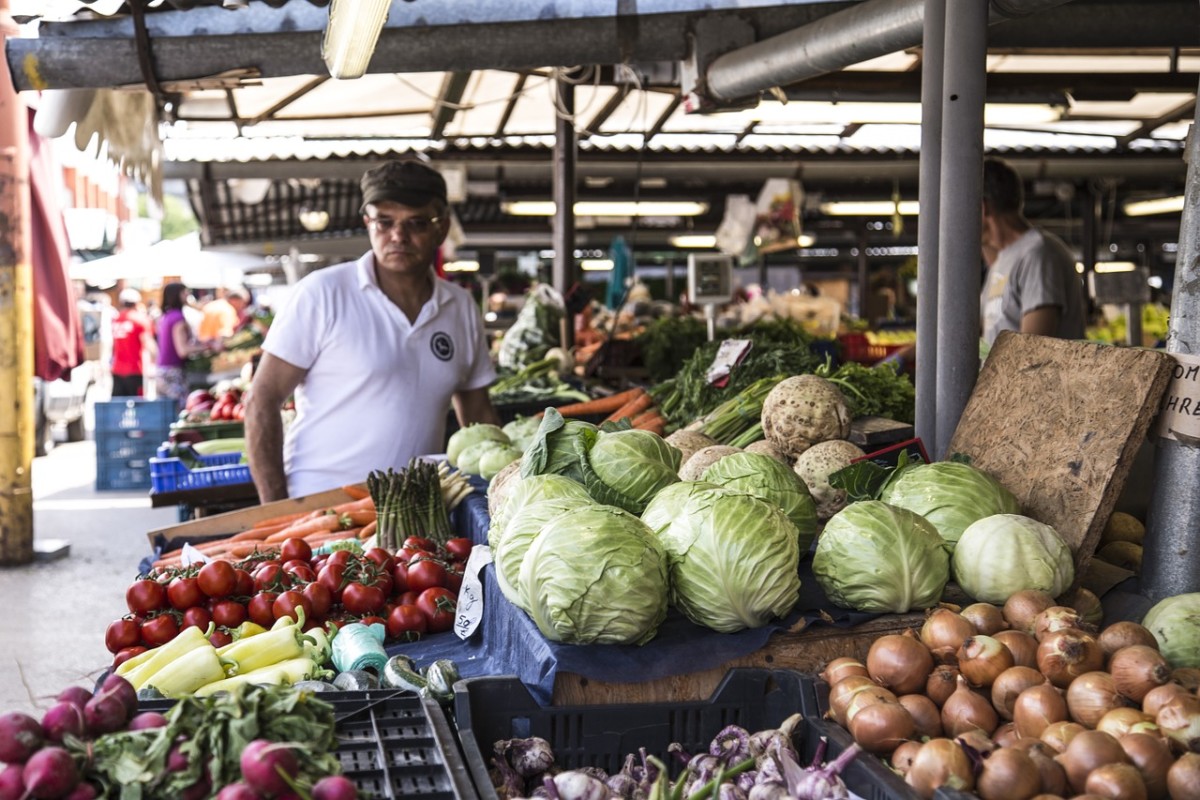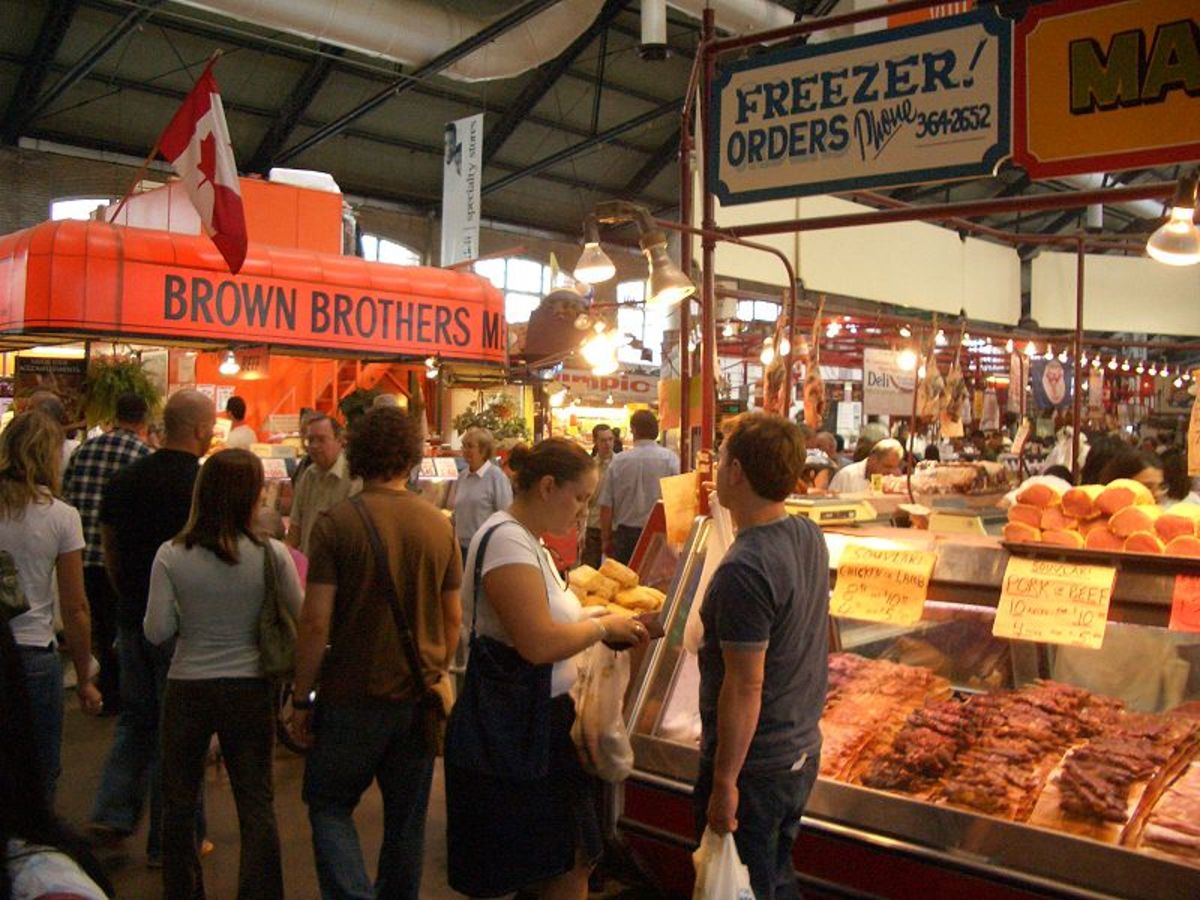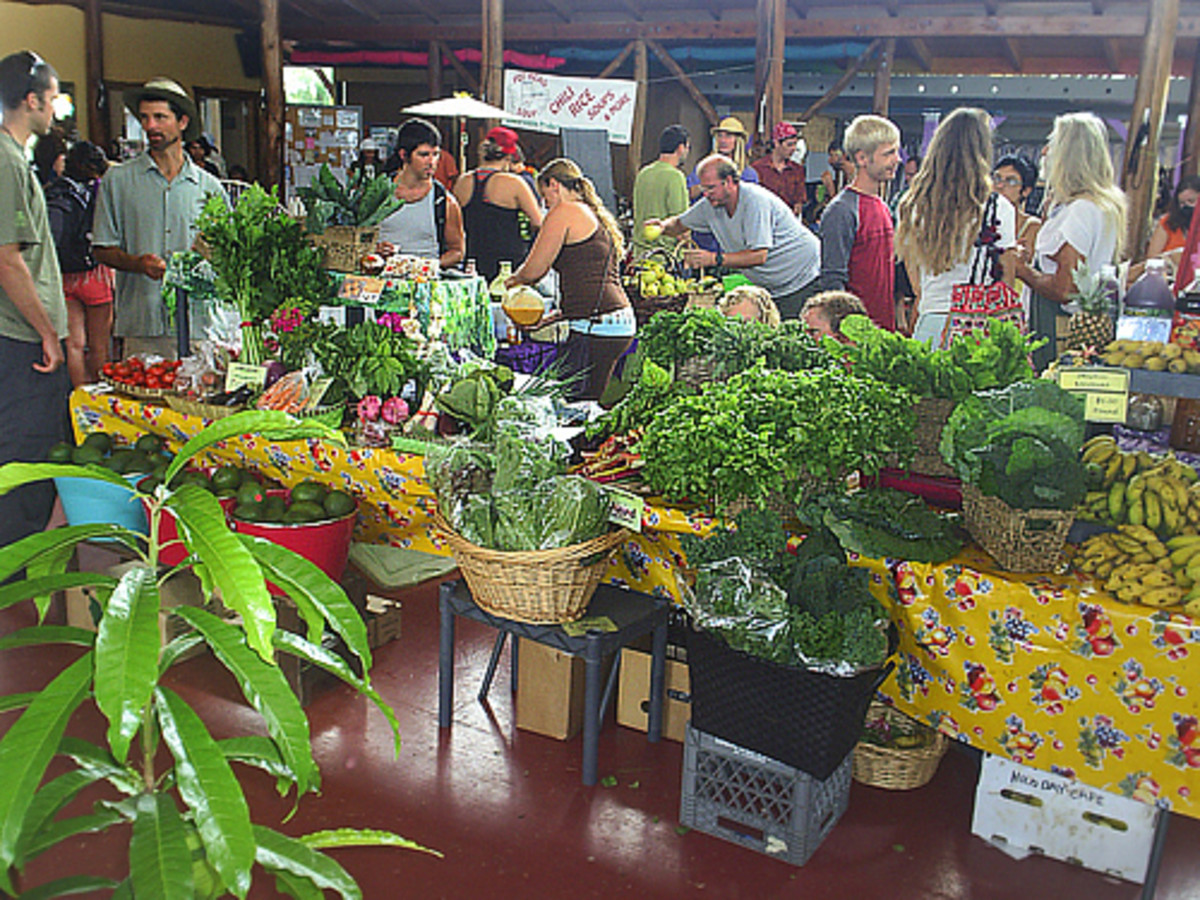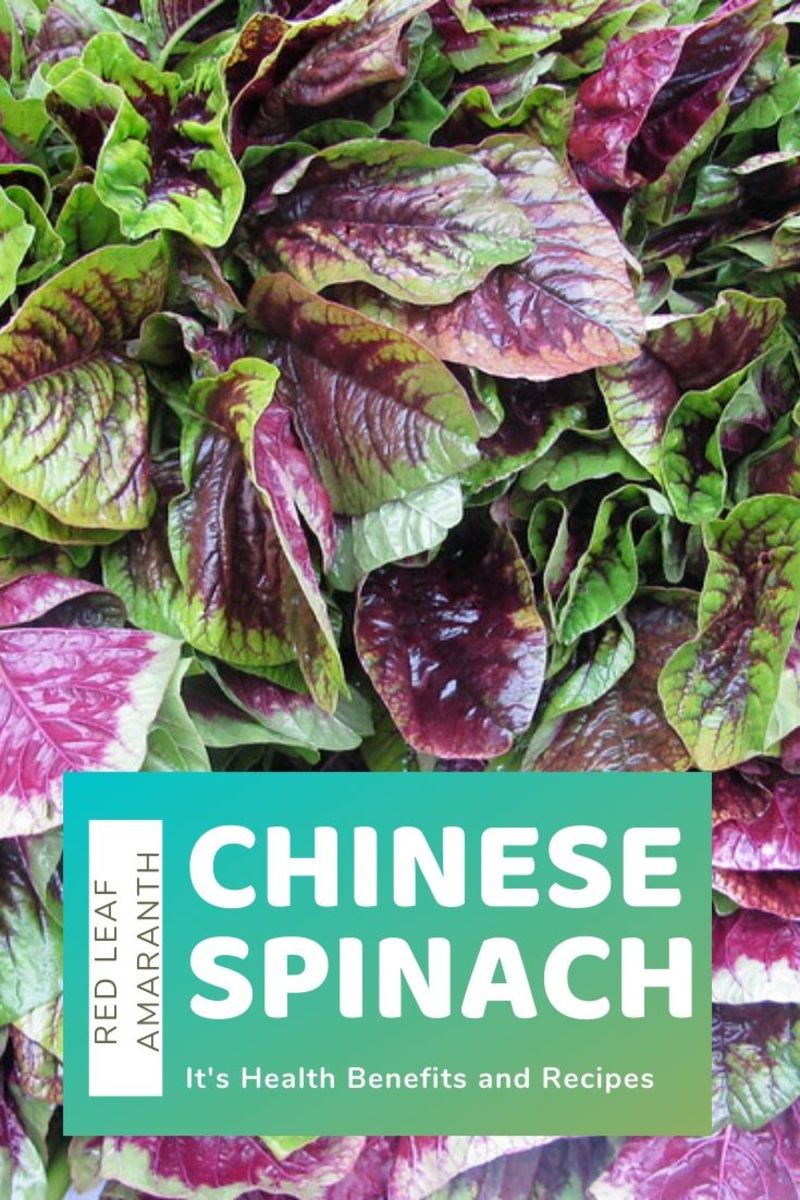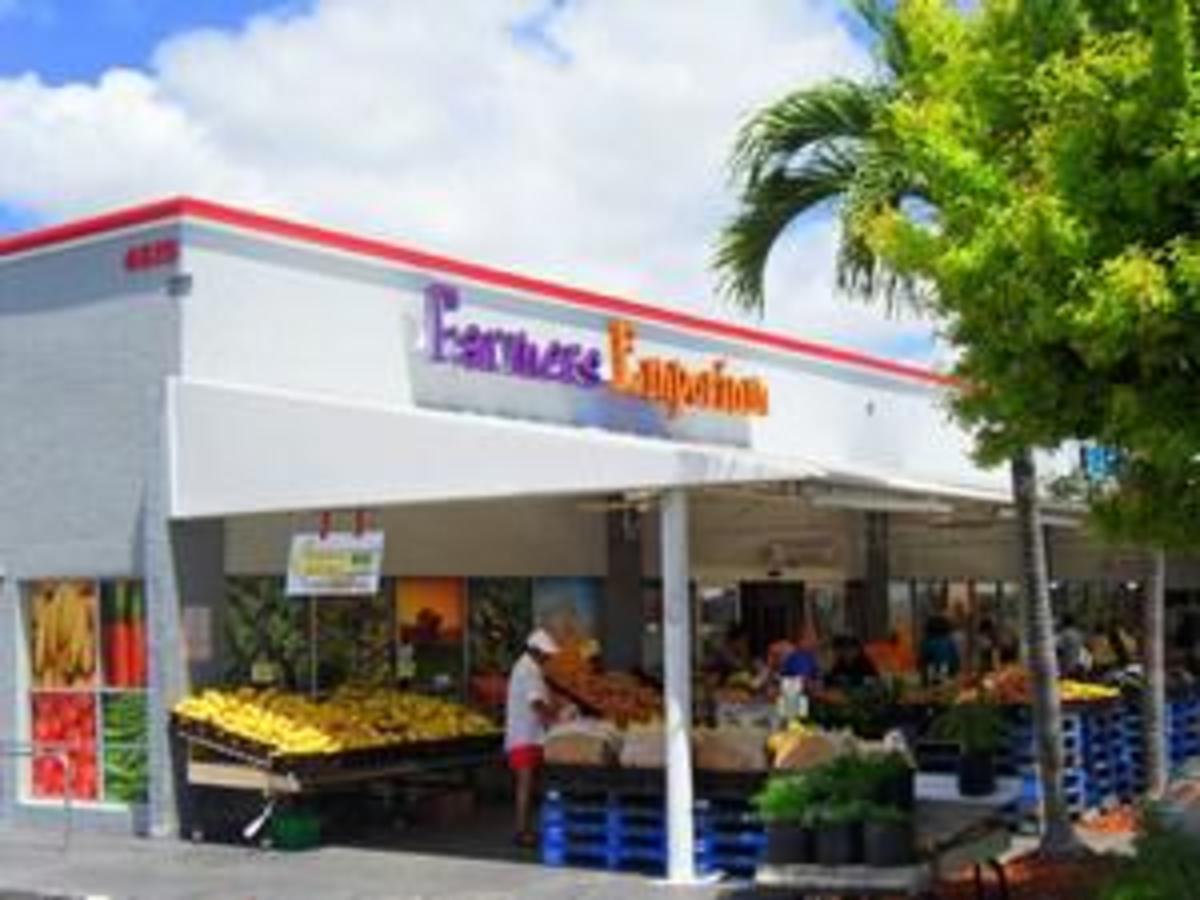8 Reasons You Should Support Your Local Farmers Market
Saturday mornings gingham-covered tables stand under umbrellas. Boxes tipped sideways on tables spill out fresh yellow squash, bright red heirloom tomatoes, and firm orange sweet peppers. Bunches of orange and green carrots and red radishes pile high on empty table space. A large basket holds collard greens. On another table, wicker baskets hold shiny apples and deep purple plums. This is the local farmers market. Supporting your local farmers market has far reaching advantages beyond your family's health. Here are eight reasons why you should skip the big box grocery store and buy your produce from local farmers.
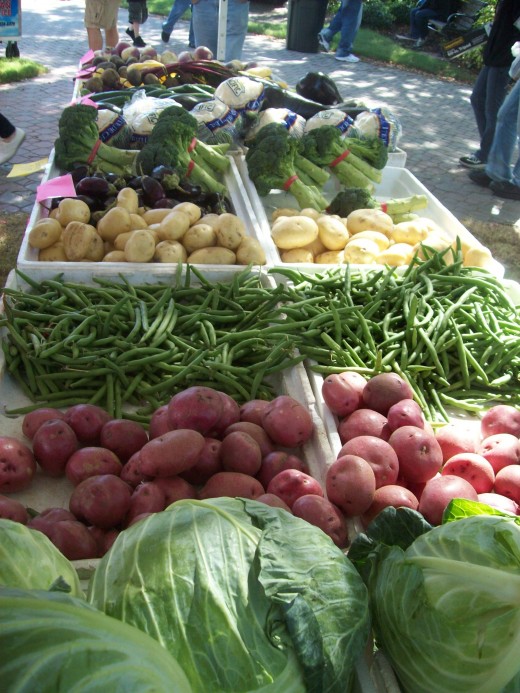
Better Tasting
Ever had a watermelon or tomato fresh off the vine? Or an orange right off the tree? Grocery store produce just doesn't have the same flavor, in part because it's allowed to ripen on the plant in the sun. It soaks up all the goodness of the soil and that turns into delicious, nutritious food for your family. Produce bought at the local farmers market is usually picked within the past 24 hours or so. The produce is ripe, the fruit juicier, the vegetables more crisp. In comparison, produce found at the grocery store is typically picked unripe and left to ripen in boxes in a truck or is even "gassed" to speed the ripening process.
Better Health
The Center for a New American Dream reports that local food is safer because “small farms tend to be less aggressive than large factory farms about dousing their wares with chemicals.” Add to that, the produce gets to dinner tables more quickly, retaining most of their nutritional value. Nutritional value declines with time as produce sit in packaging and refrigeration at big-box stores. The recent outbreaks of salmonella and E. coli in produce and nuts are partially due to improper cleaning of the equipment and poor worker hygiene. Buying locally from the farmers market reduces the risk of those bacteria because local farmers tend to grow organic produce and are more careful about cleanliness.
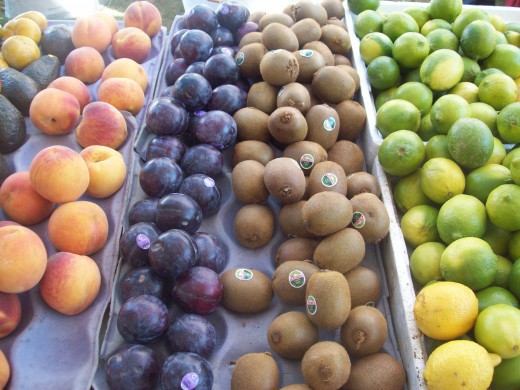
Better Personal Economy
Has anyone noticed how expensive produce is in a big-box store? In Florida tomatoes, at their least expensive, cost $2.29 per pound. Colored peppers run $3.99 per pound. Price the same items at the farmers market. Tomatoes - $1.50 per pound (or cheaper). Peppers – 3 for $1.00! That equals big savings and more money in your wallet. Let's face it - who couldn't use a little more money in the bank?
Better Local Economy
When you buy at a farmers market, you support local small businesses. Local farmers keep more of their produce’s value. They then spend that money locally. A study by the New Economic Foundation in London found that “a dollar spent locally generates twice as much income for the local economy.” And supporting the local economy is rather important these days.
Better Variety
Local farmers tend to try different crops or varieties. From week to week or year to year, the diversity of produce found at a farmers market is staggering. Did you ever find that variety of chiles or onions at the big-box store? Variety in produce leads to a variety in diet and a variety of different vitamins and nutrients ingested. And this means better health for you and your loved ones.
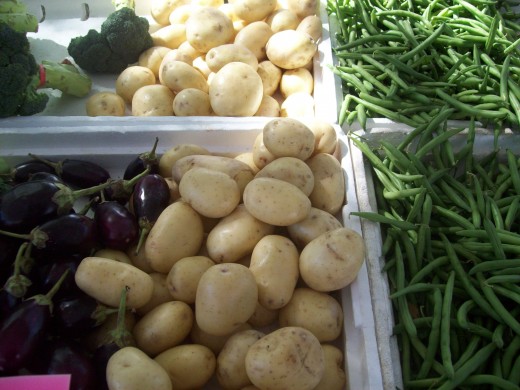
Better Biodiversity
This ties in with better variety. Better biodiversity preserves a wider agricultural gene pool which protects long-term food security. As an example, look at Ireland’s Great Famine. One of the causes was a lack of biodiversity. The Irish poor grew one variety of potato for its high yield, but once it was hit by disease, the island’s food supply was wiped out. Local farmers help prevent that by investing in and growing a greater variety of produce.
Better Air Quality
Fresh food purchased in a big-box store typically travels 1,500 miles to reach dinner tables. Strangely, there are times of year when Florida tomatoes are shipped to California while the California tomatoes are shipped to Canada. Doesn't make sense, does it? All that transportation unloads a lot of pollution into the air we breathe. Buying locally ends the need for all that long-distance travel.
Better Land Use
Supporting local farmers gives them an economic reason to continue farming. The local farmers keep their land rather than selling to developers. The land remains green and open, preserving one of our most precious natural resources – the land itself.
There are many other reasons to support the local farmers market. Not everyone will have the same reasons. Whatever your reasons, keep the support going. In the long run, it benefits everyone in the community – and beyond.
This content is accurate and true to the best of the author’s knowledge and is not meant to substitute for formal and individualized advice from a qualified professional.
© 2010 Cristina Vanthul



